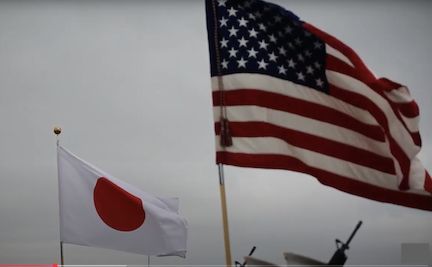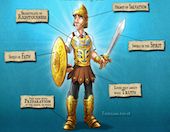The Legacy of Forgiveness
Chrisitan author and writer for such publications as Our Daily Bread writes:
Five years after World War II ended, Marvin Maris met Taizo Fujishiro at a seminary in Chicago. Although the two had once been on opposing sides during the war, Maris remained a friend to Fujishiro. He prepared class notes for him, taught him how to drive, and invited him to celebrate Christmas together. After Taizo returned to Japan, they continued to stay in touch.
Forty years later, Maris’s granddaughter, Connie Wieck, went to Japan to teach English. She called Fujishiro and introduced herself. The next day they met for lunch. Taizo told her all about her grandfather, his first American friend.
Later Connie wrote: “Having grown up in a town where many veterans still carried deep pain … I never believed forgiveness could happen between people who were directly involved in such a dark history. Yet the friendship between my grandfather and Taizo proved otherwise.”

The apostle Paul described the miracle of salvation by writing, “When we were God’s enemies, we were reconciled to Him through the death of His Son” (Romans 5:10). And John reminds us that those who have been forgiven must love their brothers and sisters (1 John 2:9-12).
The legacy of God’s forgiveness will be passed on from generation to generation if we humbly receive His gift of forgiveness in Christ and extend it to others.
Making Allies of Enemies
Being the small country it is, Liechtenstein never had much of an army. In fact, the last time it had one was in 1868. But in 1866, during the Austro-Prussian War, Liechtenstein sent 80 men to guard the Brenner Pass between Austria and Italy. When the war was over, 81 men (not 80!) returned.

Where did the extra man come from? History offers many versions, with most suggeting the extra man was a defector who either simply "liked" the Liechtensteiners or decided life and work in Liechtenstein was preferable to whichever country he was from. Either way, this soldier decided to turn his back on his past and ally himself with the Liechtenstein forces. As such, the army enjoyed a net gain of one man from marching into "battle."
As Christians, we are at constant odds with the world around. As we march into battle do we see the unsaved as enemy combattants to be conquered, dragged away as prisoners of war? Or do we see them as potential allies, whom we can welcome into our ranks, marching home from battle arm-in-arm with them?
In a world at war, be a Liechtensteiner!
"Go therefore and make disciples of all nations ..." (Matthew 28:19a, ESV)
"The fruit of the righteous is a tree of life, and whoever captures souls is wise" (Proverbs 11:30, ESV).
"My brothers, if anyone among you wanders from the truth and someone brings him back, let him know that whoever brings back a sinner from his wandering will save his soul from death and will cover a multitude of sins" (James 5:19-20, ESV).
We Cannot Control Our Enemy
During the meeting of the Constitutional Convention in Philadelphia, one of the members moved “that the standing army be restricted to no more than 5000 men at any one time.”
George Washington, being the chairman, could not offer a motion, but he turned to another member and whispered [sarcastically], “Amend the motion to provide that no foreign enemy shall invade the United States at any time with more than 3000 troops."

As Christians, we find ourselves engaged in a great, cosmic battle for souls. We can know the strategy of the enemy. We can study his tactics. We can see what he does in the lives of others and we can see the path of destruction that is left in the lives of those who follow him. What we cannot do is control him.
But we can put on the whole armor of God so that we are prepared for the fight.